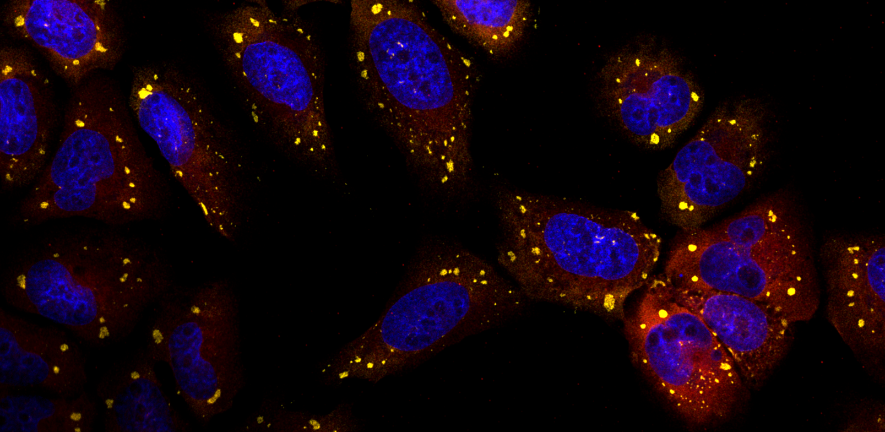Post-transcriptional control of gene expression following toxic injury
Professor Anne Willis OBE
We are investigating the role of post-transcriptional control in response to toxic injury and how this impacts on therapeutic RNAs.
Anne’s research in the Unit is directed towards understanding the role of post-transcriptional control in response to toxic injury with a focus on RNA-binding proteins, regulatory RNA motifs and tRNAs. Through our mechanistic research we are developing predictive adverse outcome models that can be shared with our industrial partners. In particular we are working to understand the “off target” effects of new modalities such as therapeutic RNAs. Anne's research on therapeutic RNAs is funded by a Wellcome Trust LEAP grant and the MRC in conjunction with the MRC Nucleic Acid Therapy Accelerator as part of a £8 million pound award (led by Matthew Wood, University of Oxford) to investigate the delivery and safety of oligonucleotide-based therapies. Anne's research is also funded by Cancer Research Technologies (as part of translational alliance with industry).
Key publications
Mulroney TE, Pöyry T, Yam-Puc JC, Rust M, Harvey RF, Kalmar L, Horner E, Booth L, Ferreira AP, Stoneley M, Sawarkar R, Mentzer AJ, Lilley KS, Smales CM, von der Haar T, Turtle L, Dunachie S, Klenerman P, Thaventhiran JED, Willis AE. N1-methylpseudouridylation of mRNA causes +1 ribosomal frameshifting. Nature; 625, 189-194 (2023).
Stoneley M, Harvey RF, Mulroney TE, Mordue R, Jukes-Jones R, Cain K, Lilley KS, Sawarkar R and Willis AE. Unresolved stalled ribosome complexes restrict cell-cycle progression after genotoxic stress. Molecular Cell; 82 (8), 1557-1572. (2022).
Grosso S, Marini A, Gyuraszova K, Vande Voorde J, Sfakianos A, Garland GD, Rubio Tenor A, Mordue R, Chernova T, Morone N, Sereno M, Smith CP, Officer L, Farahmend P, Rooney C, Sumpton D, Das M, Ficken C, Guerra Martin M, Spriggs RV, Sun X, Bushell M, Sansom OJ, Murphy D, MacFarlane M, Le Quesne JPC and Willis AE. The pathogenesis of mesothelioma is driven by a dysregulated translatome. Nature Communications; 12:4920. (2021).
Stephenson ZA, Harvey RF, Pryde KR, Mistry S, Hardy RE, Serreli R, Chung I, Allen TEH, Stoneley M, MacFarlane M, Fischer PM, Hirst J, Kellam B and Willis AE. Identification of a novel toxicophore in anti-cancer chemotherapeutics that target mitochondrial respiratory complex I. eLife; 9: e55845. (2020).
Harvey RF, Pöyry TAA, Stoneley M and Willis AE. Signaling from mTOR to eIF2α mediates cell migration in response to the chemotherapeutic doxorubicin. Sci. Signal; 12 (612):eaaw6763. (2019).























